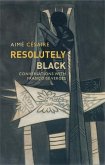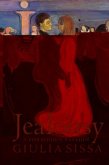Roland Barthes (1915-1980) was a central figure in the thought of his time, but he was also something of an outsider. His father died in the First World War, he enjoyed his mother's unfailing love, he spent long years in the sanatorium, and he was aware of his homosexuality from an early age: all this soon gave him a sense of his own difference. He experienced the great events of contemporary history from a distance. However, his life was caught up in the violent, intense sweep of the twentieth century, a century that he helped to make intelligible.
This major new biography of Barthes, based on unpublished material never before explored (archives, journals and notebooks), sheds new light on his intellectual positions, his political commitments and his ideas, beliefs and desires. It details the many themes he discussed, the authors he defended, the myths he castigated, the polemics that made him famous and his acute ear for the languages of his day. It also underscores hisremarkable ability to see which way the wind was blowing ? and he is still a compelling author to read in part because his path-breaking explorations uncovered themes that continue to preoccupy us today.
Barthes's life story gives substance and cohesion to his career, which was guided by desire, perspicacity and an extreme sensitivity to the material from which the world is shaped ? as well as a powerful refusal to accept any authoritarian discourse. By allowing thought to be based on imagination, he turned thinking into both an art and an adventure. This remarkable biography enables the reader to enter into Barthes's life and grasp the shape of his existence, and thus understand the kind of writer he became and how he turned literature into life itself.
Hinweis: Dieser Artikel kann nur an eine deutsche Lieferadresse ausgeliefert werden.
This major new biography of Barthes, based on unpublished material never before explored (archives, journals and notebooks), sheds new light on his intellectual positions, his political commitments and his ideas, beliefs and desires. It details the many themes he discussed, the authors he defended, the myths he castigated, the polemics that made him famous and his acute ear for the languages of his day. It also underscores hisremarkable ability to see which way the wind was blowing ? and he is still a compelling author to read in part because his path-breaking explorations uncovered themes that continue to preoccupy us today.
Barthes's life story gives substance and cohesion to his career, which was guided by desire, perspicacity and an extreme sensitivity to the material from which the world is shaped ? as well as a powerful refusal to accept any authoritarian discourse. By allowing thought to be based on imagination, he turned thinking into both an art and an adventure. This remarkable biography enables the reader to enter into Barthes's life and grasp the shape of his existence, and thus understand the kind of writer he became and how he turned literature into life itself.
Hinweis: Dieser Artikel kann nur an eine deutsche Lieferadresse ausgeliefert werden.
"Barthes, like no other modern writer, invented a critical form that was "live" in every sense, where the labor of writing criticism acquired animate breath and pulse as it entered Barthes' chronicle of aesthetic preparation for a Vita Nova, a new life, a novel, a reading of ideologies, images, voices, cultural myths and above all literary texts. Such a self-writing subject poses a daunting challenge to the biographer. But Tiphaine Samoyault has risen to it, with a magisterial life of Roland Barthes, enriched by new archival material and her own peerless talents as both writer and literary critic." - Emily Apter, New York University
"Tiphaine Samoyault's outstanding biography of Roland Barthes allows us to meet him in person, as it were, as a lively, seductive French intellectual. At the same time, Samoyault offers us a splendid introduction to Barthes' ground-breaking writings in so many fields, from literary theory to meditations about the meaning of human existence." -Thomas Pavel, The University of Chicago
'While offering the most detailed and elegantly written interpretation to date of the life and works of its remarkable subject, this book is much more than a traditional intellectual biography. Typhaine Samoyault's masterful, multilayered and, at times, lyrical narrative captures Roland Barthes the person and writer, essayist and scholar, and depicts him in his time and with his contemporaries, family and friends, colleagues and lovers, to be sure. Her phenomenal study tracks the doing and undoing of a great writer and thinker, a witness of what is still, in spite of all appearances to the contrary, very much our own time and cultural, indeed, political predicament. In so doing, she offers a valuable testimony of a person facing opportunities and challenges whose enduring lesson and bitter sweetness we have all learned to appreciate and savour.' - Hent de Vries, The Humanities Center, Johns Hopkins University
"Tiphaine Samoyault's outstanding biography of Roland Barthes allows us to meet him in person, as it were, as a lively, seductive French intellectual. At the same time, Samoyault offers us a splendid introduction to Barthes' ground-breaking writings in so many fields, from literary theory to meditations about the meaning of human existence." -Thomas Pavel, The University of Chicago
'While offering the most detailed and elegantly written interpretation to date of the life and works of its remarkable subject, this book is much more than a traditional intellectual biography. Typhaine Samoyault's masterful, multilayered and, at times, lyrical narrative captures Roland Barthes the person and writer, essayist and scholar, and depicts him in his time and with his contemporaries, family and friends, colleagues and lovers, to be sure. Her phenomenal study tracks the doing and undoing of a great writer and thinker, a witness of what is still, in spite of all appearances to the contrary, very much our own time and cultural, indeed, political predicament. In so doing, she offers a valuable testimony of a person facing opportunities and challenges whose enduring lesson and bitter sweetness we have all learned to appreciate and savour.' - Hent de Vries, The Humanities Center, Johns Hopkins University








